Invited Speakers


PROFESSOR JENNIFER BAIR
University of Virginia
Jennifer Bair is a sociologist of globalization, with interests in trade and the political economy of development, and the relationship between gender and work. Her research agenda centers on the comparative study of export-led development, and she has conducted fieldwork in Mexico, the Dominican Republic, Honduras, Nicaragua, and Bangladesh. She is the editor of Frontiers of Commodity Chain Research (Stanford University Press) and the former chair of the ASA’s section on the Political Economy of the World System. She has spoken at the United Nations, the European Parliament, the International Labor Office, and the Collège de France about supply chains, development, and labor conditions in factories around the globe. Jennifer received her B.A. in International Studies from Johns Hopkins University and her Ph.D. in Sociology from Duke University, with a Concentration in Women’s Studies.
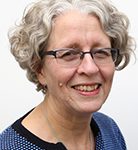
PROFESSOR STEPHANIE BARRIENTOS
University of Manchester
Stephanie Barrientos is Professor in the Global Development Institute at the University of Manchester. She has researched and published widely in the academic literature on different aspects of global production networks and value chains including: gender, agribusiness, employment, trade and labour standards, corporate social responsibility, fair and ethical trade. She has undertaken research in Africa, Asia, Latin America and Europe. She was PI on research for Cadbury mapping socio-economic sustainability of cocoa production in Ghana and India. This informed the Cocoa Partnership/Cocoa Life to support cocoa farmers, and adoption of Fairtrade. She led with Professor Gary Gereffi (Duke University) the DFID funded international research network Capturing the Gains: Economic and Social Upgrading in GVCs/GPNs, linking researchers in Africa, Asia, Europe, Latin America and USA. She has advised a large number of companies, NGOs and government organisations. Stephanie recently held a Leverhulme Major Research Fellowship (2013-16) examining Gender and Transformation in Global Retail Value Chains.

PROFESSOR RON BOSCHMA
Lund University
Since January 2013, Ron Boschma is Full Professor in Innovation Studies at Lund University in Sweden. He is also Full Professor in Regional Economics at the Department of Economic Geography at the Faculty of Geosciences, University of Utrecht. Boschma is also heading a research group of about 17 researchers at the Department of Economic Geography at Utrecht University that aims to work out conceptually and empirically the outlines of Evolutionary Economic Geography. He has widely published in international journals on Evolutionary Economic Geography, the spatial evolution of industries, regional systems of innovation, the structure and evolution of networks, agglomeration externalities and regional growth.

PROFESSOR GAVIN BRIDGE
Durham University
Gavin Bridge is Professor of Economic Geography at Durham University and has research expertise in the political economy of natural resources. His research centres on the spatial and temporal dynamics of extractive industries - oil, gas and mining - and has been funded by the US National Science Foundation, the National Geographic Society, the European Commission, UK Energy Research Centre, British Academy and Leverhulme Trust. It includes work in the Americas on the land-use changes associated with mining exploration and investment, research on organisational and geographical restructuring of the international oil sector, and a collaborative project to understand the implications for UK energy security of an evolving ‘global’ market for natural gas. He is co-author, with Philippe Le Billon, of Oil published by Polity Press (2013, 2017), co-editor of the Routledge Handbook of Political Ecology (2015), and lead author for Energy and Society: a critical perspective (Routledge, forthcoming).
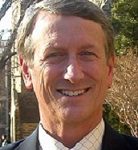
PROFESSOR GARY GEREFFI
Duke University
Gary Gereffi is Professor of Sociology and Director of the Center on Globalization, Governance, & Competitiveness at Duke University, where he teaches courses in economic sociology, globalization and comparative development, and international competitiveness. He received his B.A. degree from the University of Notre Dame and his M.Phil. and Ph.D. degrees from Yale University. Gereffi has published numerous books and articles on globalization, industrial upgrading, and social and economic development in various parts of the world. His books include: Free Trade and Uneven Development: The North American Apparel Industry after NAFTA (Temple University Press, 2002); The New Offshoring of Jobs and Global Development (International Institute of Labor Studies, 2006); Manufacturing Climate Solutions: Carbon-Reducing Technologies and U.S. Jobs (Center on Globalization, Governance & Competitiveness, Duke University, 2008); and Global Value Chains in a Postcrisis World: A Development Perspective (The World Bank, 2010). Gereffi's research interests deal with the competitive strategies of global firms, the governance of global value chains, economic and social upgrading, and the emerging global knowledge economy.

DR MARTIN HESS
University of Manchester
Martin Hess is a Senior Lecturer in Human Geography in the School of Environment and Development, University of Manchester. Following his undergraduate and graduate studies in Bamberg and Munich, he worked in the Department of Economic Geography at the University of Munich, Germany, where he also obtained his PhD. Hess’ main research interest firmly lies in the analysis of global production networks (GPNs) and regional development. In particular, he is interested in the embeddedness and power configurations of GPNs and their implications for development outcomes. More specifically, there are currently three areas of research he pursues. First, continued work on the theoretical foundations of the global production networks approach, working towards a cultural political economy of GPNs; second, empirical research on mobile communications GPNs and especially mobile providers, services, software and applications; third, the implications of GPN configurations and variegated capitalism on working conditions and workers rights in the Global South.
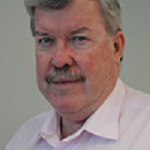
PROFESSOR PATRICK LOW
Asia Global Institute
Patrick Low is currently a Visiting Professor at the University of Hong Kong and Fellows Program Director at the Asia Global Institute. He was Chief Economist at the World Trade Organisation (WTO) for sixteen years until 2013 following a seven-year tenure at the GATT Secretariat, starting in 1980. Between his roles at the GATT and the WTO, Low taught economics for three years at El Colegio de México in Mexico City. During this time, he worked as a consultant for a range of governments and inter-governmental institutions. From 1990 to 1994, he worked as a senior economist in the World Bank’s research complex (International Trade Division) where his research focused on trade policy, trade and the environment, fiscal policy and customs reform. He was also an Adjunct Professor of International Economics at the Graduate Institute of International Development Studies, Geneva, for nine years from 2004 where he taught courses focusing on trade policy and theory, economics of the environment and trade and climate change. He holds a BA in Economics from the University of Kent and a PhD in Economics from Sussex University, both in the UK, and has written widely on a range of trade policy issues.

PROFESSOR LAYNA MOSLEY
University of North Carolina, Chapel Hill
Layna Mosley is Professor in the Department of Political Science at the University of North Carolina. Her research and teaching interests fall into the broad areas of international relations, international political economy, and comparative political economy. Her research explores the effects of international capital mobility -- and, in particularly, sovereign finance -- on government policy choices, the role of private sector actors in global financial regulation, and the relationship between labor rights and multinational production. Prior to arriving at the University of North Carolina in 2004, Layna Mosley was a faculty member at the University of Notre Dame.

PROFESSOR STEFANO PONTE
Copenhagen Business School
Stefano Ponte is Professor of International Political Economy in the Department of Business and Politics, Copenhagen Business School (CBS). He is also the co-director of the CBS Sustainability Platform. He is primarily interested in transnational economic and environmental governance, with focus on overlaps and tensions between private governance and public regulation. He analyzes governance dynamics and economic and environmental upgrading trajectories in global value chains. He is particularly interested in how sustainability standards, labels and certifications shape agro-food value chains, and in how different forms of partnerships affect sustainability outcomes.

PROFESSOR JOHN RAVENHILL
University of Waterloo
John Ravenhill is Professor in the Department of Political Science at the University of Waterloo and Director of the Balsillie School of International Affairs. He received his PhD from the University of California at Berkeley, having previously completed Masters degrees at Indiana University and Dalhousie University, and a BSc(Econ.) at the University of Hull.
He was the founding editor of the Cambridge University Press book series, Cambridge Asia-Pacific Studies, and is on the Editorial Boards of Review of International Political Economy, Pacific Affairs, International Relations of the Asia-Pacific, Business and Politics, and the Australian Journal of Political Science. He was the inaugural winner of the Australian Political Science Association’s L.F. Crisp medal for distinguished contributions to the discipline. He has been a Visiting Professor in the IOMBA program at the University of Geneva, at the International University of Japan, the University of California, Berkeley, and was the National Trade Unions Congress Professor of International Economic Relations at the Nanyang Technological University in Singapore. He has been a consultant to the World Bank, the Asian Development Bank, the ASEAN Secretariat, and the US Department of State. he is a Fellow of the Academy of Social Sciences in Australia.
He is currently completing a book on the auto industry in East Asia, and continues to work on production networks and on trade agreements in the Asia-Pacific region.
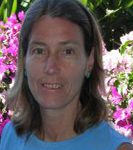
PROFESSOR LAURA RAYNOLDS
Colorado State University
Laura T. Raynolds is a Professor of Sociology at Colorado State University and the Co-Director of the Center for Fair & Alternative Trade. Her research focuses on globalization, international development, food & agriculture, gendered labor forces, and fair & alternative trade. She has done extensive field-based research in the Dominican Republic, Haiti, Mexico, Ecuador, Peru, and Costa Rica, and has received numerous grants, including support from the National Science Foundation, Ford Foundation, US Agency for International Development, and the John D. & Catherine T. MacArthur Foundation. She has published over 40 articles and chapters as well as two co-edited books.
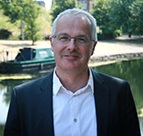
PROFESSOR ADRIAN SMITH
Queen Mary, University of London
Adrian Smith is a professor of Human Geography at Queen Mary University of London. He is also Editor-in-Chief of the journal European Urban and Regional Studies, was elected to the Academy of Social Sciences in 2007, and received the Royal Geographical Society’s Gill Memorial Award in 2003. Between 2007 and 2011 he served a four year term as Head of the School of geography at Queen Mary University of London, he co-ordinated the university’s 2014 Research Excellence Framework preparations and submission, and since January 2014 has been Dean for Research in the Faculty of Humanities and Social Sciences.
His main interests are in economic geography and labour, global production networks, economic (in)security, and the restructuring of industries in post-socialist East-Central Europe and North Africa. He was trained in human geography and development studies, and his interests continue to focus on the relations between uneven development and political economy. He is a member of the QMUL Centre on Labour and Global Production.
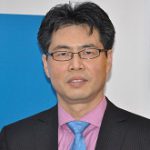
PROFESSOR YUQING XING
National Graduate Institute for Policy Studies, Tokyo
Yuqing Xing is a Professor of Economics and the Director of Asian Economic Program at the National Graduate Institute for Policy Studies, Tokyo. Xing had been a Visiting Researcher of Asian Development Bank Institute; a Visiting Senior Research Fellow of East Asian Institute at the National University of Singapore; a Visiting Research Fellow of the Bank of Finland; a Sabbatical Fellow of the World Institute for Development Economics Research and a Visiting Professor of the Institute for Advanced Studies, both at the United Nations University. Xing has provided consulting services to Asian Development Bank and Asian Development Bank Institute.
Xing obtained his Ph.D in economics from University of Illinois at Urbana-Champaign, USA, and M.A and B.A. from Peking University, China. His research focuses on trade, exchange rates, FDI and regional economic integration. He has published numerous research papers in internationally refereed journals. His research on the iPhone and the Sino-US trade imbalance has been cited and discussed in the Wall Street Journal, Financial Time, Forbes, Time, Foreign Policy, the National Public Radio of the US, etc.

PROFESSOR WILLIAM MILBERG
New School for Social Research
William Milberg is Dean and Professor of Economics at the New School for Social Research and Co-Director of the Heilbroner Center for Capitalism Studies at The New School. His research focuses on the relation between globalization, income distribution and economic growth, and the history and philosophy of economics. He teaches graduate courses in international trade, political economy, the history of economic thought, and a seminar on the methodology of economics. His undergraduate courses include “Understanding Global Capitalism” and “The Making of Economic Society.” His most recent book (with Deborah Winkler) is Outsourcing Economics: Global Value Chains in Capitalist Development (Cambridge University Press). A previous book, The Crisis of Vision in Modern Economic Thought (Cambridge University Press) was co-authored with the late Robert Heilbroner. His paper with Peter Spiegler, “Methodenstriet 2013: Historical perspective on the contemporary debate over how to reform economics,” won the award for best paper of 2013 in the Forum for Social Economics.
Early career grant recipients
STEFANO BOLATTO (Department of Economics - University of Bologna, Italy)
Intangible assets and the organization of global supply chains
JEFFREY CAREY (Department of Geography & Planning - Queen’s University, Canada)
Disruptive technological change, GPN restructuring and regional transformation in the Canadian automotive industry
WEI CHEN (Department of Government & International Studies - Hong Kong Baptist University, Hong Kong)
From factory to family workshop: the choice of workplace among Chinese female garment workers under global production chain
GERMANO GEHRKE (FURB - Universidade de Blumenau, Brazil)
Global Value Chains: An Application to the Hering Company in Brazil - From Captive Value Chain Player to Regional Lead Firm
Md. TARIKUL ISLAM (School of Business - Deakin University, Australia)
Do cooperation within buyer-supplier relationships and supplier firms entrepreneurial orientation matter in upgrading within the Global Value Chain? The mediating roles of organizational capacity
The CGP Early Career Grants are funded by the Global Productions Networks Centre, NUS.
